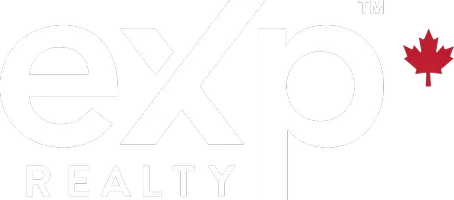

Selling Your Home for Top Dollar: Overcoming Fears and Maximizing Value
Selling a home is more than just a transaction; it's a pivotal moment filled with hopes and fears. Among the most common fears for sellers is not getting top dollar for their property. This concern is not just about financial loss but also about the emotional attachment and effort put into making a house a home. In this article, we'll explore the top 10 strategies to alleviate this fear and ensure you're well-equipped to sell your home for its maximum value. Recognizing the Fear of Not Getting Top Dollar The fear of not selling a home for its worth can be daunting. It's a mix of emotional and financial worries. Understanding this fear is the first step in addressing it. It's about recognizing the hard work you've put into your home and wanting to see it reflected in the sale price. Comprehensive Market Analysis: Pricing It Right A crucial step in ensuring you get top dollar for your home is conducting a comprehensive market analysis. This involves understanding the current real estate trends in Edmonton, which you can learn more about in our articles titled, Edmonton Housing Market Trends. Accurate pricing based on market dynamics is essential to attract serious buyers and avoid prolonged market exposure. Effective Home Staging: Maximizing Appeal Staging your home effectively can significantly impact its perceived value. This involves decluttering, rearranging furniture, and possibly making minor upgrades to enhance its appeal. The goal is to help potential buyers envision themselves living in the space. Professional Photography and Videography: Showcasing Your Home In today's digital age, the first impression of your home is likely to be online. Professional photography and videography can capture the essence of your home, highlighting its best features. This visual appeal can make a substantial difference in attracting potential buyers. Leveraging Online Marketing: Expanding Reach Utilizing online platforms for marketing your home is non-negotiable. This includes listing your property on real estate websites and leveraging social media to reach a broader audience. Effective online marketing can significantly increase your home's visibility. Energy Efficiency and Home Audits: Adding Value Improving your home's energy efficiency can be a selling point. Conducting a home energy audit and implementing changes can increase your home's value and appeal. For more on this, check out our article on Energy Efficiency for Your Home: Unlocking the Power of an Energy Audit. Understanding Legal Aspects: Smooth Transactions Navigating the legal aspects of selling a home is crucial. This includes understanding local bylaws and ensuring all legalities are addressed, as discussed in our article, Bylaw Breakdown: Building a Bright Future in Edmonton's Real Estate. Ensuring legal compliance can prevent future disputes and streamline the selling process. Offering Flexible Terms: Attracting Buyers Being flexible with terms such as closing dates or minor contingencies can make your property more attractive to potential buyers. This flexibility can be a decisive factor for buyers choosing between multiple options. Effective Communication with Potential Buyers: Building Trust Open and transparent communication with potential buyers can build trust and facilitate a smoother transaction. It's about being responsive to inquiries and providing clear, honest information about your property. Negotiation Skills: Securing the Best Deal Strong negotiation skills are key to getting top dollar for your home. This involves understanding the buyer's position, being clear about your priorities, and finding a mutually beneficial agreement. Understanding Buyer's Perspective: Catering to Market Needs Understanding what buyers in the current market are looking for can help you tailor your selling strategy. This might involve highlighting certain features of your home or making small adjustments to appeal to current trends. Keeping Up with Current Migration Trends: Knowing Your Audience Being aware of migration trends, as discussed in our article, Current Migration Trends to Alberta, can help you understand the changing demographics of potential buyers. This knowledge can inform your marketing strategy and help you target the right audience. Choosing the Right Real Estate Professional: Expert Guidance Selecting the right real estate professional can make a significant difference. A knowledgeable agent can guide you through the process, from market analysis to closing the deal. For insights on choosing between a mortgage broker and a bank, refer to our article, Mortgage Broker vs. Bank: Making the Right Choice. Conclusion Selling your home for top dollar is achievable with the right approach. By understanding the market, preparing your home effectively, and utilizing the right strategies, you can overcome the fear of not getting the value your home deserves. Remember, every step you take towards preparing and presenting your home can have a significant impact on its final sale price. FAQs How important is staging in selling my home? Staging can significantly impact how quickly your home sells and for how much. It helps potential buyers visualize the space as their own. Can energy efficiency really increase my home's value? Yes, it might amaze you how often we are asked by buyers for the seller to provide the amounts they have spent on utilities. Energy-efficient homes are increasingly in demand, often selling for a higher price due to their lower long-term costs. Should I always accept the highest offer for my home? Not necessarily. The highest offer might come with contingencies or terms that are not favorable. It's important to consider all aspects of an offer. How can I improve my home's online listing? High-quality photos, detailed descriptions, and highlighting unique features can improve your online listing's effectiveness. Is it worth investing in minor home repairs before selling? Yes, addressing minor repairs can improve the overall appeal of your home and prevent potential buyers from being deterred by small issues.
Read More

Mortgage Broker vs. Bank: Making the Right Choice
When it comes to securing a mortgage for your dream home, the decision often boils down to using a mortgage broker or heading straight to a bank. But which is the better option? Let's dive deep and explore! Introduction Buying a home is a significant milestone. And the journey often starts with securing the right mortgage. While banks have traditionally been the go-to option, the rise of mortgage brokers offers a compelling alternative. Understanding the Basics What is a Mortgage Broker? A mortgage broker acts as a middleman between you and potential lenders. Their primary role is to compare mortgage products across various lenders and find a deal that suits your needs. What is a Bank? A bank, on the other hand, is a financial institution that offers its own set of mortgage products. When you approach a bank, you're limited to the options they provide. Hottest NEW Listings in Edmonton - JUST LISTED Key Differences Between Mortgage Brokers and Banks Mortgage brokers have access to a plethora of lenders and can present multiple mortgage options. Banks, however, can only offer their proprietary products. Advantages of Using a Mortgage Broker Access to Multiple Lenders Brokers can provide a variety of choices since they collaborate with numerous financial institutions. This means they can potentially find you a better rate than what your bank might offer. Negotiation Power Brokers often have the leverage to negotiate better rates, thanks to their volume of business and relationships with multiple lenders. Tailored Solutions For those with unique financial situations, such as being self-employed or having a non-traditional credit history, brokers can be invaluable. They can connect you with lenders that specialize in non-standard mortgages. Advantages of Using a Bank Familiarity and Trust Many people have longstanding relationships with their banks. This familiarity can offer a sense of trust and security when navigating the mortgage process. Bundling Opportunities Banks often provide opportunities to bundle your mortgage with other financial products, potentially leading to discounts or better rates. Potential Drawbacks Limitations of Banks Banks have a limited selection, often restricted to their in-house products. This can mean missing out on better deals available in the broader market. Variability in Broker Quality Not all brokers are created equal. While many offer exceptional service and expertise, others might not have the same level of experience or access to a wide range of products. Making the Decision: Factors to Consider Your choice will ultimately depend on your personal preferences, trust level, and financial situation. It's essential to do thorough research, ask questions, and weigh the pros and cons of each option. Conclusion Whether you choose a mortgage broker or a bank, the most crucial aspect is to feel confident in your decision. Both options have their merits, and by understanding the advantages and potential pitfalls of each, you can secure a mortgage that aligns with your financial goals. Frequently Asked Questions Is it more expensive to use a mortgage broker? Typically, mortgage brokers are paid by the lender, not the borrower. However, it's essential to clarify any fees upfront. Can I trust the advice of mortgage brokers? Reputable brokers work in the best interest of their clients. It's always a good idea to check reviews and ask for references. Do banks offer more security than brokers? Both banks and brokers must adhere to industry regulations. However, the familiarity of a known bank might offer some individuals a greater sense of security. Can I switch from a broker to a bank during the mortgage process? Yes, but it might complicate the process. It's best to decide early on to ensure a smooth journey. Do brokers have access to all the same mortgage products as banks? Brokers have access to a wide range of products from various lenders, including many banks. However, some bank-specific products might not be available through brokers.
Read More

Energy Efficiency for Your Home: Unlocking the Power of an Energy Audit
When it comes to selling your home, maximizing its value is crucial. As a seasoned Realtor with over 25 years of experience in Edmonton, Alberta, Canada, I've seen firsthand the impact that energy efficiency can have on a home's market value. One of the most effective ways to boost your home's energy efficiency is through an energy audit. What is an Energy Audit? An energy audit is a comprehensive assessment of your home's energy consumption. It identifies areas where energy is being wasted and provides actionable recommendations to improve efficiency. This can include anything from upgrading insulation to installing energy-efficient appliances. The Benefits of an Energy Audit The benefits of an energy audit are threefold: 1. Financial Savings: - By addressing inefficiencies, homeowners can significantly reduce their monthly utility bills. 2. Environmental Impact: - An energy-efficient home contributes to a healthier planet by reducing its carbon footprint. 3. Enhanced Home Comfort: - Consistent temperatures, better air quality, and fewer drafts are just a few of the comforts an energy-efficient home can provide. Why Choose a Professional for Your Energy Audit? While there are DIY options available, a professional energy audit is far more comprehensive. As a Realtor committed to excellence, I employ an advanced and aggressive marketing system that includes promoting the energy-efficient features of your home. This not only attracts the right audience but also creates excitement around your listing. The Process of an Energy Audit A professional energy audit typically involves three main steps: 1.*Initial Assessment: - A general overview of the home's energy usage, including an examination of utility bills and a discussion of the homeowner's concerns. 2. In-Depth Examination: - A detailed inspection of the home's insulation, heating and cooling systems, windows, and more. 3. Recommendations and Implementation: - A report detailing the findings and suggested improvements, with the potential for substantial energy savings. Maximizing Your Home's Value Through Energy Efficiency As a Realtor with a unique "coming to market" strategy, I understand the importance of making your home stand out in a competitive market. An energy-efficient home not only appeals to environmentally conscious buyers but also adds significant value to your property. By investing in an energy audit, you are taking a proactive step toward maximizing your home's market value. Curious about what your home is worth? Click here to get the instant value of your home. Conclusion In conclusion, an energy audit is a powerful tool that can unlock the full potential of your home's energy efficiency. As your trusted Realtor, I am committed to helping you navigate the home selling process with ease, ensuring that your property gains unparalleled visibility and attracts the right buyers. Let's work together to make your home more energy-efficient and maximize its market value. Hottest NEW Listings in Edmonton - JUST LISTED FAQs 1. How much does an energy audit cost? - The cost varies based on location and home size, but it is an investment that often pays for itself through energy savings. 2. How long does an energy audit take? - Typically, a few hours, depending on the home's size and complexity. 3. Can an energy audit increase my home's value? - Yes, homes with proven energy efficiency often have higher resale values. 4. Are there any government incentives for energy-efficient improvements? - Many governments offer rebates or tax incentives for energy-efficient upgrades. Check local programs for details. 5. How often should I get an energy audit? - Every 3-5 years or after major home renovations.
Read More

Bylaw Breakdown: Building a Bright Future in Edmonton's Real Estate
Introduction to Edmonton's New Zoning Bylaws Edmonton, a bustling city in Canada, has recently undergone significant changes in its zoning bylaws. These changes aim to streamline the development process, protect historical sites, and ensure a seamless transition for all properties. Background and Importance Previous Zoning Bylaws The previous bylaws served the city for many years but were not without their challenges. As Edmonton grew and evolved, so did the need for a more flexible and modern set of bylaws. Need for Change With the city's expansion and the increasing complexity of urban development, there was a pressing need to revise the old bylaws. The new regulations aim to address these challenges head-on. Key Features of the New Bylaws Development Rights One of the guiding principles of the new bylaws is that properties should experience little to no loss of development rights. This ensures that property owners and developers have clarity and confidence in their projects. Zone Transitioning Properties will transition to the closest equivalent zone under the new bylaws, minimizing non-conforming uses and developments. Infrastructure and Service Upgrades The new bylaws anticipate that new infrastructure and service upgrades will not be necessary due to the rezoning transition. However, requirements will be reviewed on a case-by-case basis during the application stages. Protection of Historic Resources Edmonton values its history, and the new bylaws ensure the protection of Municipal Historic Resources and Heritage Areas. Hottest NEW Listings in Edmonton - JUST LISTED Impact on Residents Taxation and Assessment The rezoning aligns closely with taxation and assessment timelines, ensuring a smooth transition for property owners. Moreover, the majority of properties will not see an immediate impact on their tax assessment values. Direct Control Zones These zones are out of scope for the new bylaws, meaning they won't transition to the closest equivalent zone. Conclusion Edmonton's new zoning bylaws mark a significant step forward in the city's urban development journey. By addressing the challenges of the past and anticipating the needs of the future, Edmonton is poised for sustainable and harmonious growth. FAQs What prompted the change in zoning bylaws? The city's growth and the complexities of urban development necessitated a change. Will my property lose any development rights? The aim is for properties to experience little to no loss of development rights. How will the new bylaws affect historical sites? They ensure the protection of Municipal Historic Resources and Heritage Areas. Are there any anticipated infrastructure upgrades due to the new bylaws? New infrastructure upgrades are not anticipated, but requirements will be reviewed case-by-case. What happens to Direct Control Zones under the new bylaws? They are out of scope and won't transition to the closest equivalent zone. Results of the Vote The City of Edmonton is undergoing significant changes with the introduction of new zoning bylaws. These bylaws are set to redefine the city's landscape, affecting everything from residential areas to commercial and industrial zones. In this article, we will dive into the details of the new City of Edmonton Zoning Bylaws, explaining their purpose, key changes, and the implications they carry. Understanding Zoning Bylaws Zoning bylaws are an integral part of urban planning. They dictate how land within a city can be used and developed. By determining where residential, commercial, and industrial activities are permitted, zoning bylaws play a crucial role in shaping the character and function of a city. Purpose of the New Bylaws The new zoning bylaws in Edmonton have been crafted with several key objectives in mind. These include promoting sustainable development, accommodating population growth, and enhancing the overall quality of life for residents. Additionally, the bylaws aim to simplify and modernize existing regulations. Key Changes in the Zoning Bylaws One of the most significant aspects of the new bylaws is the changes they bring. These changes touch on various aspects of city planning and development, and they will have far-reaching effects. Residential Zoning Updates Under the residential zoning category, several updates have been made: Single-Family Homes The bylaws now include provisions for single-family homes that encourage energy-efficient construction and emphasize green building practices. These changes align with the city's commitment to sustainability. Multi-Family Dwellings Multi-family dwellings, such as apartment buildings and townhouses, are subject to new regulations that address density, design, and accessibility. The goal is to create vibrant and livable communities. Commercial Zoning Updates Commercial areas within the city are also affected by the new zoning bylaws. These changes impact businesses and the overall urban environment. Industrial Zoning Updates Industrial zones are not left untouched. The bylaws introduce measures to modernize these areas, making them more adaptable to contemporary industries. Mixed-Use Zoning The concept of mixed-use zoning is gaining prominence in the new bylaws. This approach encourages the integration of residential, commercial, and recreational spaces within the same development, fostering a sense of community and reducing the need for extensive commuting. Zone Equivalencies Zone equivalencies are introduced to simplify zoning and development processes. They allow for more flexibility while maintaining the overall intent of the bylaws. Community Engagement Throughout the development of these bylaws, the city has actively engaged with the community to gather feedback and ensure that the regulations align with the needs and aspirations of Edmontonians. Impact on Real Estate The real estate market in Edmonton will undoubtedly be influenced by these zoning bylaws. Changes in residential and commercial zoning may affect property values and investment opportunities. Challenges and Concerns While the new zoning bylaws bring about positive changes, they also raise challenges and concerns for property owners and developers. These include potential restrictions and increased compliance requirements. City Council Approval City council approval was a crucial step in the process of implementing these bylaws. Understanding how the bylaws passed through the council is important in appreciating their significance. Implementation Timeline Finally, the article will provide information on when these new zoning bylaws will come into effect, allowing residents and businesses to prepare accordingly. Conclusion In conclusion, the new City of Edmonton Zoning Bylaws represent a significant shift in urban planning and development. These changes aim to create a more sustainable, adaptable, and livable city for residents and businesses alike. While challenges may arise, the potential benefits are substantial, and Edmontonians can look forward to a transformed urban landscape. FAQs 1. What are zoning bylaws?2. How do zoning bylaws impact property values?3. Can I still build a single-family home under the new bylaws?4. What is the role of zone equivalencies?5. How can I stay informed about the implementation timeline for the new zoning bylaws? Resources Used City of Edmonton - What We Heard Report: Zoning Bylaw Renewal Initiative Engagement City of Edmonton - Zoning Bylaw Renewal Initiative Proposed Zone Equivalencies City of Edmonton - City-wide Rezoning Guiding Principles City of Edmonton CTV News Edmonton Global News Edmonton Edmonton Journal
Read More
Categories
- All Blogs (22)
- downsizing (2)
- Eco-friendly Homes (1)
- Edmonton Bylaws (2)
- Events & Community News (4)
- First Time Home Buyer (4)
- Gardening & Landscaping (1)
- Home Buying Tips (14)
- Home Insurance (2)
- Home Selling Tips (6)
- How to (9)
- increase home value (8)
- Interior Design (1)
- Local Market Trends (8)
- market Influences (11)
- Market Update (9)
- Migration (2)
- Mortgage Info (2)
- Moving & Relocation (8)
- Neighborhood Profiles (4)
- Real Estate FAQs (15)
- Real Estate Investment (1)
- Real Estate Laws & Regulations (2)
- Technology in Real Estate (2)
Recent Posts










